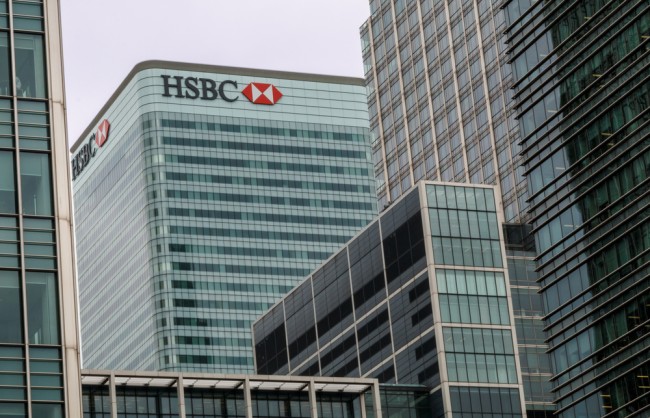HSBC has been warned by the US authorities that it is being too slow to tackle financial crime, with an official monitor installed at the bank after a money laundering scandal four years ago raising “significant concerns”.
As Britain’s biggest bank reported profits of £13.2bn ($18.8bn) for 2015 and £7.3m pay deal for its chief executive Stuart Gulliver, it disclosed that the monitor refused to sign off on the group’s progress in toughening up its procedures to avoid a re-run of the 2012 money laundering scandal for which it was fined £1.2bn.
The monitor, in a report provided to the bank in January and disclosed on Monday, expressed “significant concerns” about the pace of progress in making changes required to bolster its compliance systems. The monitor “did not certify as to the HSBC’s implementation of, and adherence to,” the deferred prosecution agreement signed at the time of the fine, the bank said.
The warning was contained in the 502-page report detailing the bank’s profits for 2015, in which it also revealed it was among a number of firms being investigated by US regulators over its hiring of individuals with links to government officials in Asia, known as “princelings”. The impact of this investigation by the Securities and Exchange Commission could be significant, it warned.
It was among a string of matters listed in the legal disclosures by the bank. They also included ongoing litigation involving the collapse of the investments by Bernard Madoff, litigation dating back to the subprime mortgage crisis in the US and investigations into Fifa.
The bank said it was continuing to co-operate with ongoing investigations into the tax practices inside its Swiss arm which was exposed by the Guardian and other publications and dominated coverage of last year’s profits, when Gulliver’s pay was £7.6m.
Full-year profits were up just 1 per cent, the bank said, because it had incurred fewer fines, paid out less in compensation to customers and made a gain on the sale of one its operations. In the fourth quarter of 2015 it made an unexpected loss. The shares were down almost 4 per cent in early London trading, the biggest fallers in the FTSE 100.
The bank has set aside $4.5bn – up from $4bn a year ago – to cover investigations into tax-related matters and foreign exchange manipulation as well as a court case involving its US arm and compensation for payment protection insurance (PPI). The provision for PPI misselling increased by $549m during the year – other banks reporting in the coming days are also expected to increase their provisions.
As HSBC kicked off the UK banking reporting season in one of the most febrile environments since the 2008 banking crisis, Gulliver said: “The current economic environment is uncertain but our diversified banking model, low earnings volatility and strong capital generation give us strength and resilience that will stand us in good stead.”
He is in the process of cutting 25,000 jobs to improve returns to shareholders.
Last week, HSBC ended a nine-month review of whether it should remain headquartered in the UK, and concluded it would stay put. However, it revealed 1,000 jobs could move to Paris if the UK voted to leave the EU and Douglas Flint, the chairman, said the referedum which was called over the weekend would not reopen the debate over its headquarters.
The decision was taken after the UK government appeared to cut back on bashing bankers and reduced the bank levy on bank balance sheets, which HSBC had warned would impede its ability to pay dividends. Flint said: “It is too early to say whether this amounts to a new understanding between the industry and the public, but it is encouraging that the industry is once again gaining a voice at a time of great economic and geopolitical uncertainty”.
The bank also said the introduction of UK rules on pay that require bonuses to be deferred over seven years, rather than three, required changes to its pay plans. It said these rules “are more stringent than the rules in force in the EU, US, and Asia-Pacific, making it challenging for UK banks to attract talent with transferable skills or from other industries. We believe more regulator coordination is required to ensure there are more globally consistent remuneration standards and a level playing field”.
Under this new plan, Gulliver’s possible annual pay is being cut to £9.9m from as much as £13m in the past, while the minimum amount he can receive will be £3.3m. The bank is reducing the amount paid into his pension from 50 per cent of his salary to 30 per cent in response to investor concerns. Other changes are also being made to the long-term incentive plan to link this three year bonus plan with returns to shareholders.
The bank also disclosed that more that more than 453 of its 264,000 staff were paid €1m (£780,000) or more.
Amid concern about the exposure of banks to the plunging oil price, the bank took a $400m charge to oil and gas exposures, which amounted to $29bn in total.
HSBC raised its dividend to $0.51 from $0.50, a total payout of $10bn for shareholders. Flint said: “In approving the dividend increase, the board noted that prospective dividend growth remained dependent on the long-term overall profitability of the group and delivering further release of less efficiently deployed capital.”
The 4 per cent rise in the total dividend compared with a 2 per cent fall in total employee pay of $20.3bn, the bank said.


